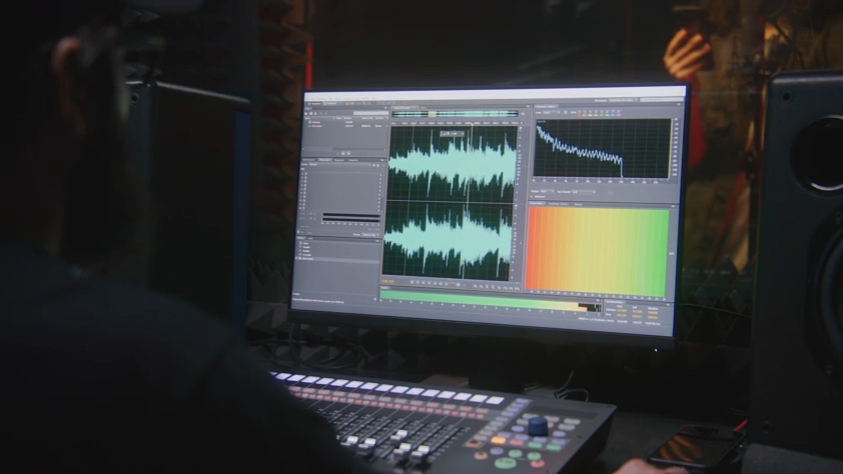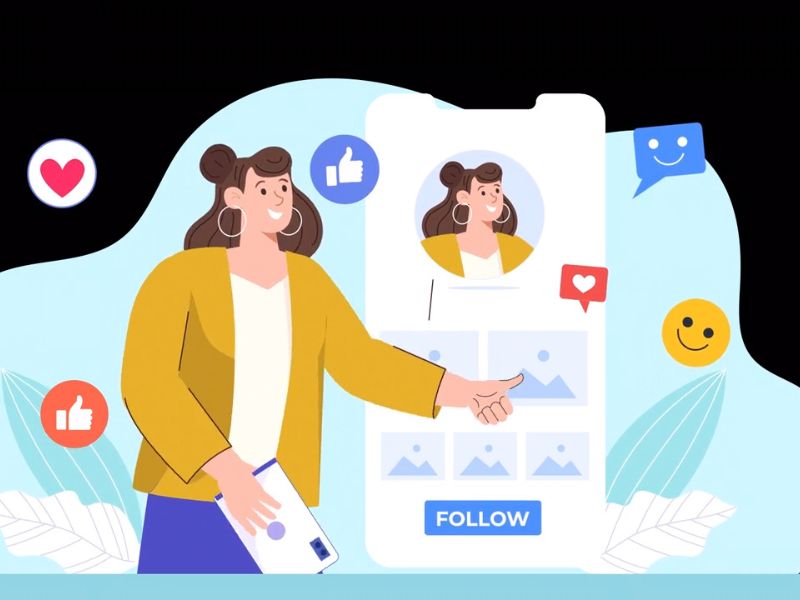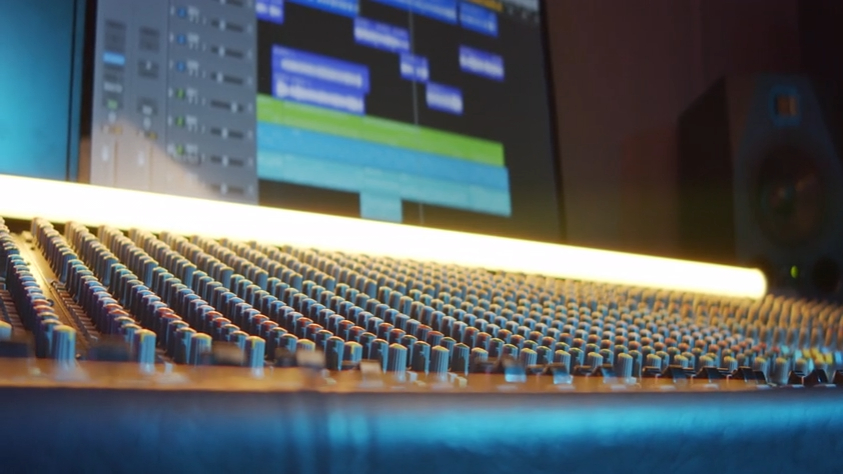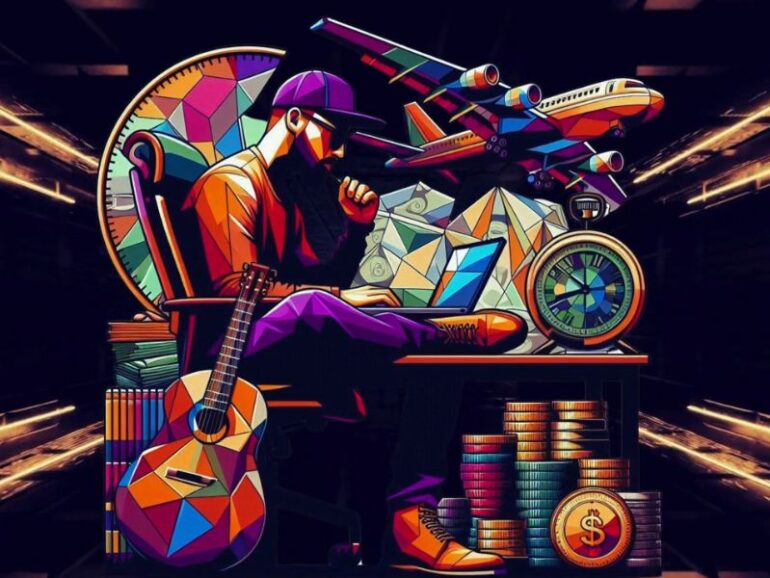The music landscape has dramatically changed in the past decade, with new ways emerging for independent musicians to carve their own space.
With each day getting better because of artificial intelligence, artists finally have access to a suite of tools that makes production, marketing, and distribution seamless.
This, in itself, levels out the playing field for musicians not beholden to the major labels.
AI in Music Production: The New Studio Assistant

Probably the most important way in which AI is changing the face of independent musicianship is through music production.
Gone are the days when an artist needed studio time and a team of producers to create quality tracks.
Today, AI-driven platforms offer composition, mixing, and mastering solutions that make it easier than ever to produce professional-grade music from a home setup.
For example, AI-powered text to music generator tools allow artists to input a theme or some lyrics and then receive a melody in return.
This novelty helps musicians speed up the creation process by giving them new ideas which they might have never thought of.
Amper Music and AIVA are just some of the tools generating compositions in multiple genres; this gives independent artists quite a wide berth to experiment without having to go through extensive musical training.
Enhancing Songwriting with AI-Powered Tools
Songwriting is often the heart of an artist’s creative process, and AI is stepping in to provide valuable support.
AI-powered lyric generators like OpenAI’s MuseNet or Google’s Magenta can suggest lyrics based on specific themes, moods, or styles, sparking inspiration when artists face creative blocks.
These tools do not replace the emotional depth of human songwriting but serve as a starting point to build upon.
Customized Marketing with AI
Beyond production, AI is a game-changer in marketing. Independent musicians often struggle with promotion due to budget constraints and lack of industry connections.
AI-driven marketing tools help bridge this gap by analyzing audience data and predicting the best ways to engage listeners.
Platforms like Spotify for Artists and YouTube Analytics use AI to track user engagement, allowing musicians to tailor their promotional strategies based on listener behavior.
Additionally, AI-powered social media tools can automate content scheduling, analyze engagement metrics, and even suggest optimal times to post, ensuring maximum reach.
Optimizing Social Media Presence with AI

Social media has become an indispensable tool for artists, and AI can enhance its effectiveness.
Tools like Hootsuite Insights and Socialbakers use AI to analyze trends, suggest content ideas, and identify key audience demographics.
This helps artists craft posts that resonate more deeply with their fans.
Recommendations:
- Use AI to identify trending topics relevant to your music
- Automate posts during peak engagement times
- Analyze audience feedback for continuous improvement
AI-Powered Distribution and Playlisting
One of the biggest challenges a musician faces as an independent artist is getting his/her music in front of the right audience.
AI is redefining distribution, helping get the music in front of listeners, via streaming and playlists, more effectively.
The algorithms analyze the composition, tempo, and genre of a track, thus matching it with users who show interest in such sounds.
Services like Spotify and Apple Music make playlists using the power of AI, creating even more possibilities in finding independent artists.
Other platforms, such as SubmitHub, use AI to connect musicians with playlist curators, enabling them to place their music in influential playlists more frequently.
Leveraging Data Analytics for Smarter Distribution
AI-driven data analytics can identify which regions or demographics respond best to certain tracks.
By studying streaming data, artists can target their promotional efforts geographically, focusing on areas with the highest listener engagement.
Key Benefits:
- Pinpointing the most responsive audiences
- Optimizing tour planning based on listener locations
- Refining marketing strategies with data-backed insights
AI in Live Performance and Fan Engagement
AI is also enhancing live performances. Virtual and augmented reality technologies, powered by AI, have been letting artists create immersive concerts that engage fans beyond conventional stage performances.
AI-driven lighting and sound optimization tools ensure quality performances, even in smaller venues.
Moreover, chatbots and AI-powered CRM systems help artists stay in touch with their fans in a more productive manner.
In addition, the ChatGPT and ManyChat platforms allow artists to respond to fan queries, promote upcoming concerts, and even sell merchandise by automating personal interactions.
Revolutionizing Virtual Concerts with AI
Virtual concerts have gained popularity, especially post-pandemic, and AI is central to their success.
AI helps simulate crowd reactions, adjust real-time audio quality, and create interactive experiences that mimic the energy of live events.
Key Features:
- Real-time audience interaction through AI-driven platforms
- Personalized concert experiences based on fan preferences
- Advanced sound engineering for high-quality virtual performances
Role of AI in Generating Revenue for Independent Artists
Monetization remains a key concern for independent artists, and AI has opened up new revenue avenues.
In AI-powered platforms, artists are able to maximize their revenues by targeted advertising, dynamic pricing of merchandise items, and automatic royalty tracking.
For example, some AI-powered copyright detection systems such as ACRCloud and Pex trace the usage of songs in several places for the due amount of compensation rights of artists.
These are highly essential services as they greatly reduce unauthorized access and ensure compensatory rights in the most appropriate manner.
Expanding Income Streams with AI Solutions
AI can identify untapped revenue streams by analyzing consumption patterns.
Subscription-based platforms, dynamic ad placements, and personalized merchandising strategies become more effective with AI insights.
Strategies:
- Implement AI-driven ad placements for higher conversion rates
- Use AI to recommend personalized merchandise to fans
- Maximize streaming royalties through optimized distribution channels
Ethical Considerations and Challenges

While AI carries a number of benefits with its use, quite a number of ethical questions it does throw open.
Originality and loss of human touch, with increasing trends of AI-generated music, pose a challenge; similarly, if AI algorithms controlled more aspects in the process of discovering new tunes, then chances of homogeneity in content prevail, with just algorithm-friendly tracks making their ways.
Independent artists have to find a balance between convenience and artistic integrity.
Using AI as a tool, not a replacement for creativity, can help artists maintain their unique sound while benefiting from technological advancements.
Conclusion: Embracing AI Without Losing Authenticity
Undeniably, AI is transforming the music industry by equipping independent musicians with tools for more effective creation, marketing, distribution, and monetization of their work.
Through AI-powered production, marketing automation, and intelligent distribution, artists can reach larger audiences and develop careers in a more sustainable way, without traditional industry gatekeepers.
Success in the digital age, though, still necessitates authenticity and creative expression.
Independent musicians need to embrace AI as a complement to their artistry, rather than a replacement, to let their music ring personal and powerfully in the ever-changing landscape.
With balance, AI is an invaluable ally in helping independent artists thrive as never before.
- How AI Is Helping Independent Musicians Thrive in the Digital Age - February 3, 2025


